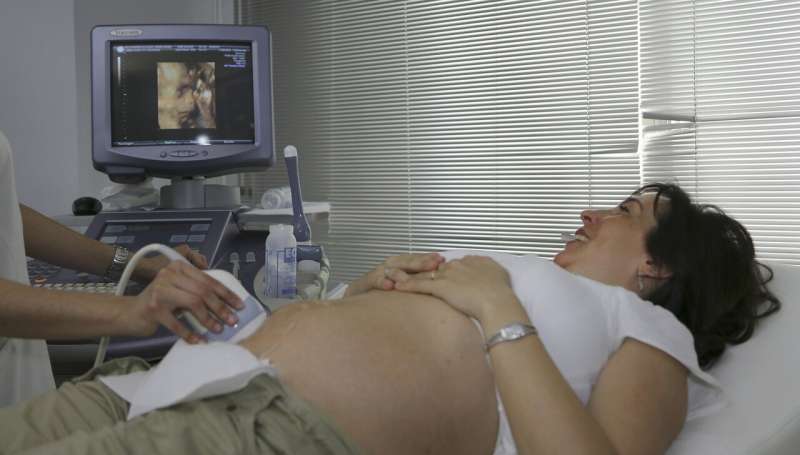Fewer Obstetric Complications with Enhanced Ultrasound Monitoring in Pregnant Women Experiencing Reduced Fetal Movements

A groundbreaking study reveals that additional ultrasound assessments, including blood vessel resistance measurements, can significantly reduce complications during delivery in women experiencing reduced fetal movements.
A recent extensive international study has demonstrated that incorporating additional ultrasound assessments during pregnancy can significantly reduce complications associated with decreased fetal movements. Led by gynecologist Sanne Gordijn at the University Medical Center Groningen, the research focused on evaluating placental function through resistance measurements in the umbilical cord and fetal brain. These measurements, particularly the cerebroplacental ratio (CPR), provide valuable insights into the health of the fetus and the functioning of the placenta.
Pregnant women often perceive less fetal movement in the later stages of pregnancy. While this can sometimes be normal, it may also indicate serious issues such as placental insufficiency leading to oxygen deprivation or fetal distress. Currently, standard practice involves immediate hospital evaluation with tests like fetal heart rate monitoring, ultrasound scans for fetal growth, and amniotic fluid assessment.
However, the study found that adding ultrasound-based measurements to determine the resistance in fetal blood vessels—using the CPR—helps healthcare providers better decide whether early delivery is necessary. An abnormal CPR suggests potential placental failure, prompting timely intervention, whereas a normal CPR can allow for continued observation, supporting the woman's preference for home birth if desired.
The findings revealed that when the CPR measurement was used, there were fewer complications around the time of birth, leading to improved outcomes for both mother and baby. With this tool, clinicians can more accurately assess fetal well-being, distinguishing cases that require urgent delivery from those that can safely wait. This approach is expected to influence future guidelines on managing pregnancies with perceived decreased fetal movement.
The study, involving 1,684 women across 23 hospitals, was published in The Lancet Obstetrics, Gynaecology & Women's Health. It underscores the importance of advanced ultrasound techniques in obstetric care, aiming to enhance fetal health monitoring and reduce adverse birth outcomes.
For more information about this research, visit Medical Xpress.
Stay Updated with Mia's Feed
Get the latest health & wellness insights delivered straight to your inbox.
Related Articles
Polio Outbreak Declared in Papua New Guinea
A polio outbreak has been declared in Papua New Guinea, driven by low vaccination rates and detected through wastewater testing. Public health efforts are focused on vaccination to control the spread of this highly infectious disease.
Pregnancy Complications as Early Indicators of Future Stroke Risk
Research shows that pregnancy complications like preeclampsia and preterm delivery can serve as early warning signs for increased stroke risk later in a woman's life, emphasizing the importance of early prevention and monitoring.
Mushroom-Derived Compound Influences Gut Microbes Linked to Colorectal Cancer
A groundbreaking study reveals how a mushroom-derived antioxidant influences gut bacteria, unveiling new insights into colorectal cancer mechanisms and potential therapeutic targets.
Understanding What Happens in the Brain When It Learns Something New
Discover how the human brain's neural pathways respond to new learning experiences, emphasizing the importance of meaningful associations and causality in memory formation.



